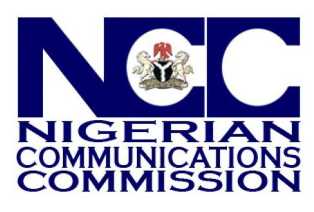Telecom
NCC says 40m Nigerians Out of Internet Coverage

The Nigerian Communications Commission, NCC, has disclosed that about 40 million Nigerians are currently been deprived access to the internet due to over 200 access gaps recorded in the Information and Communication Technology industry.
Speaking at the ongoing International Telecommunication Union, ITU, Annual Regional Human Capacity Building Workshop organized in conjunction with the Digital Bridge Institute, Executive Vice Chairman/Chief Executive officer of the NCC, Prof. Umar Danbatta, also stated that something needed to done urgently to bridge these gaps.
He said, “In Nigeria, we have more than 200 access gaps. We know where these gaps are and you won’t believe this, but these access gaps deprive Nigerians, close to 40 million of them, access to internet.
“When we talk about policies that need to be put in place to improve internet services, we need to look at what we can we do to fast track plugging these access gaps, because unless we do something, many of our citizens would continue to live without access to internet, especially the right kind of internet connectivity, the high speed internet, which must be facilitated by broadband infrastructure.”
Danbatta maintained that the infrastructure that is necessary to facilitate access to the internet must be available, noting, however, that the Federal Government had started the process and had already divided the country into seven zones, with each zone having a licensee to deploy broadband infrastructure.
“The whole essence is to provide that connectivity which is necessary; and connectivity that is easily accessible and easily available and of course, affordable, to the masses of this country.
I believe other countries are doing the same so that access to the internet can be facilitated at the right speed and time, irrespective of where our citizens are located. Access is very important,” he noted.
The NCC chief executive insisted that connectivity was key to empowering citizens, socially and economically, adding that it would play a critical role in the country’s digital transformation drive.
Telecom
MTN Says New N6.98 USSD Charge Won’t Affect Airtime Recharge

Lynda Saint-Nwafor, chief Enterprise business officer, MTN Nigeria, has assured the network subscribers that the new end-user billing system for the use of USSD services will jot affect them.

USSD, otherwise Unstructured Supplementary Service Data codes are commonly used for banking transactions, airtime recharges, and other mobile services.
The telco said that there is no significant impact or change other than the fact that they will now pay the same N6.98 per session (120 seconds) with their airtime instead of direct bank debit.
Saint-Nwafor, said this during a chat with MTN MIP fellows, explaining that the Central Bank of Nigeria (CBN) and the Nigerian Communications Commission (NCC) have ordered telecom operators to ensure that the new billing model resolves trust issues and ensures transparency in the billing process.
“Our regulator insisted that at the end of every month, we are going to be providing history and statistics on the performance of the service across the board”, she explained.
Saint-Nwafor added that the new billing model has standardized messaging across all operators and ensures consistent communication with customers.
“We will take all the error codes and map them into messages that are standardised across the board. So, if you initiate a transaction, you will know if it is failing. And, when the transaction fails, you will know if it is from your bank or the telco,” she explained.
Telecom
Crypto Scam Unmasked: U.S. Recovers Record $225m in Global Fraud Bust

The U.S. government has recovered $225 million in what is now the largest seizure of funds linked to a cryptocurrency investment scam.

In a statement released Wednesday, June 18, the U.S. Attorney’s Office said the recovery followed an extensive investigation by the FBI and the U.S. Secret Service, using blockchain analysis and other forensic tools. The statement did not confirm whether any arrests had been made.
According to the authorities, the stolen funds originated from fraudulent cryptocurrency investment schemes that tricked victims into believing they were making legitimate investments. More than 400 individuals around the world, including dozens in the United States, were reportedly affected.
The operation involved a sophisticated money laundering network that carried out hundreds of thousands of blockchain transactions to obscure the source and ownership of the stolen assets.
“These scams prey on trust, often resulting in extreme financial hardship for the victims,” said Shawn Bradstreet, Special Agent in Charge at the U.S. Secret Service office in San Francisco.
Bradstreet added that U.S. officials hope the recovered funds can eventually be returned to the rightful victims.
Cryptocurrency investment fraud accounted for over $5.8 billion in reported losses in 2024 alone, according to the statement.
Telecom
Nnaemeka Ani Calls on African Techies to Rewrite the Narrative

In a rousing declaration that is electrifying minds across the continent, Hon. Nnaemeka Ani, Special Adviser on ICT to Enugu State Governor, Dr. Peter Mbah, has called for a homegrown digital revolution under the banner “Africa Will Rise: By Code, By Courage, By Us.”

Hon. Nnaemeka Ani
The message, part challenge, part philosophical—seeks to galvanize African innovators to move beyond buzzwords and build technology with impact and legacy in mind.
“Let’s stop building for hype. Let’s start building for legacy,” Ani urged while speaking to ICT journalists over the weekend. “Let’s stop waiting for someone else. Let’s start creating the future—on our own terms.”
At the heart of Ani’s vision is a shift from tech consumerism to tech authorship. With innovation hubs sprouting across cities like Enugu, Lagos, Kigali, Jo’Burg, and Nairobi, and a growing community of developers, engineers, and entrepreneurs determined to solve Africa’s unique challenges, the movement is already taking shape.
Ani emphasized that Africa’s future lies not in flashy apps or international admiration but in persistent, intentional solutions that uplift communities—solutions that digitize public services, bridge rural-urban divides, empower women and youth, and build resilience in food and climate systems.
“We have the talent,” he said. “Now it’s time to harness it—to stop building for likes and start building for lasting impact.”
With support from leaders like Ani and rising momentum in Africa’s tech corridors, it seems that a new chapter is being written—one line of code at a time.

 General News3 days ago
General News3 days agoNASRDA, Galaxy Space Firm Sign MoU on Satellite Connectivity

 Telecom3 days ago
Telecom3 days agoOver 1m Nigerians Reached through MTN Staff’s Digital and Community Outreach

 Telecom3 days ago
Telecom3 days agoMafab Gets 0724 Number Series, Launches Mcom 5G Brand

 News3 days ago
News3 days agoDBN Awards N13m in Grants to Tech Startups

 Telecom3 days ago
Telecom3 days agoNCC to Name, Shame Telecom Infrastructure Vandals

 News3 days ago
News3 days agoFCCPC Shuts France, Belgium, and Italy Visa Centres in Abuja Over Alleged Consumer Rights Violations

 Telecom3 days ago
Telecom3 days agoWSIS Review: Nigerian ICT Leaders Urged to Shape Global Digital Future

 E-Financial3 days ago
E-Financial3 days agoBank Customers Petition CBN over Illegal Deductions, Demand Action























